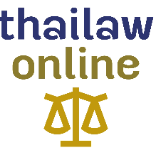New Rules To Setup A Company: Some Money Must Be Shown
-
Recently Browsing 0 members
- No registered users viewing this page.
Announcements
-
Topics
-
Latest posts...
-
249
Things that never happened.....
No, `11th Armored Calvary Unit. Probably armored personnel carriers. -
249
-
4
THAILAND LIVE Thailand Live Tuesday 5 November 2024
NACC Urged to Seek PM's Insight on Thaksin's Hospital Treatment Paetongtarn Shinawatra. File photo The National Anti-Corruption Commission (NACC) has been encouraged to directly request information from Prime Minister Paetongtarn Shinawatra regarding her father, the de facto leader of the Pheu Thai party, Full story: https://aseannow.com/topic/1342601-nacc-urged-to-seek-pms-insight-on-thaksins-hospital-treatment/ -
0
NACC Urged to Seek PM's Insight on Thaksin's Hospital Treatment
Paetongtarn Shinawatra. File photo The National Anti-Corruption Commission (NACC) has been encouraged to directly request information from Prime Minister Paetongtarn Shinawatra regarding her father, the de facto leader of the Pheu Thai party, Thaksin Shinawatra's treatment at the Police Hospital. Thai Liberal leader Seripisut Temiyavej has urged the NACC to obtain concrete details as they have yet to receive the necessary information from hospital authorities. Prime Minister Paetongtarn refrained from commenting when questioned about the NACC's efforts to acquire details surrounding her father's medical care. Thaksin, embroiled in multiple lawsuits, is accused of wielding excessive influence over Thailand's Pheu Thai party members. Seripisut suggested that the NACC might also approach Defence Minister Phumtham Wechayachai, who oversees military and police affairs. Phumtham is considered a close ally of Thaksin, who is alleged to have overstated his illness, securing a six-month stay in a hospital instead of serving his year-long prison sentence for previous misconduct upon returning from self-exile last year. Furthermore, Seripisut declined to testify before the House Committee on National Security on Thursday regarding Thaksin's alleged misuse of medical privileges. He cited concerns about revealing "factual, significant secrets" to committee members who are also Pheu Thai MPs potentially loyal to Thaksin. Previously addressing an NACC panel on this matter, Seripisut admitted to visiting Thaksin at the hospital twice before his parole release earlier this year. His long-standing acquaintance with Thaksin dates back to their days as fellow graduates of the Police Academy, even if their careers followed different paths within the police force. The NACC's investigation into Thaksin’s hospital stay remains a point of contention amidst political scrutiny and ongoing legal battles, reported Thai Newsroom. -- 2024-11-05 -
2
Trump Tentatively Backs RFK Jr.’s Proposal to Remove Fluoride from Public Water Supply
If you hang around withs dogs long enough,you will get fleas. -
0
Election Day - neck on the line - who wins?
I'm going for Harris. She is a shockingly worthless candidate but I did pick her out for President in 2018 and I'll stick with her for one reason. She's not Trump. I said here month's ago that Trump Hatred would see him beaten. If Amy Klobuchar, my other 2018 pick, was the candidate this race would be in the bag for the Dems. Equally; someone like Ron DeSantis would have crushed Kamala. But it's Harris v Trump, and Harris will win. .- 1
-

-
1
Brave Student in Iran Protests Dress Code by Stripping Down, Faces Violent Arrest
A brave woman my heart breaks to think of her fate in the hands of those murderous mullas ……..heartbreaking -
3,152
Cheapest good weed now ? I found 350 thb/gram but not cheaper yet, any idea ?
How could you not know? That's just basic knowledge.
-
-
Popular in The Pub
.png.3b3332cc2256ad0edbc2fe9404feeef0.png.8488ab72b8bb2e508209bfe3211b6e08.png)






Recommended Posts
Create an account or sign in to comment
You need to be a member in order to leave a comment
Create an account
Sign up for a new account in our community. It's easy!
Register a new accountSign in
Already have an account? Sign in here.
Sign In Now